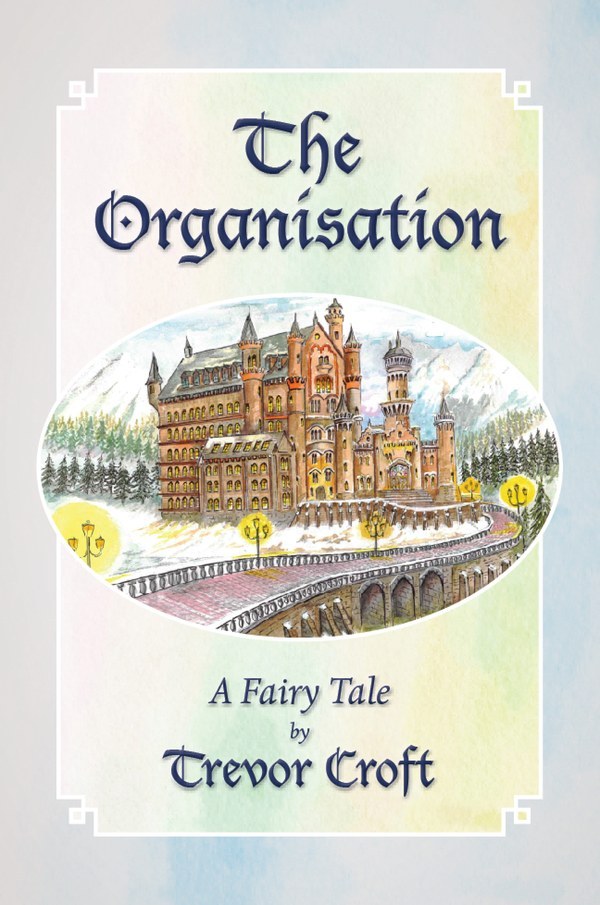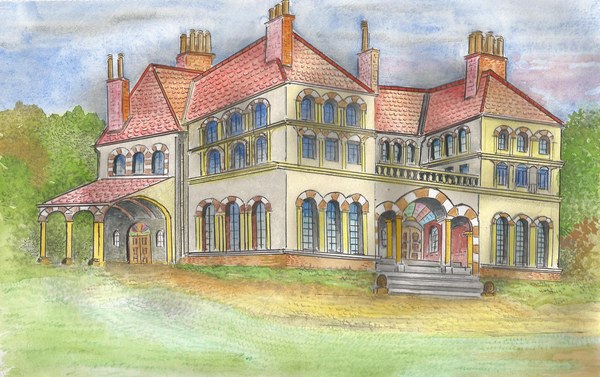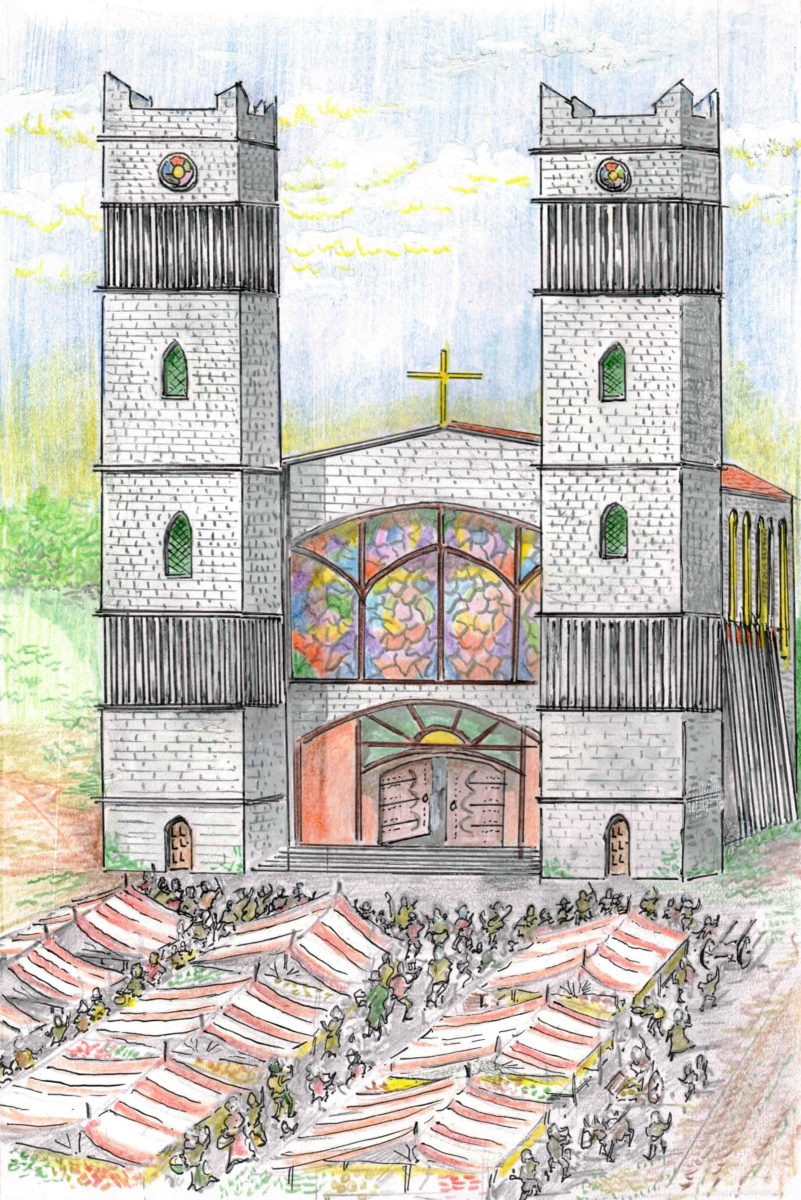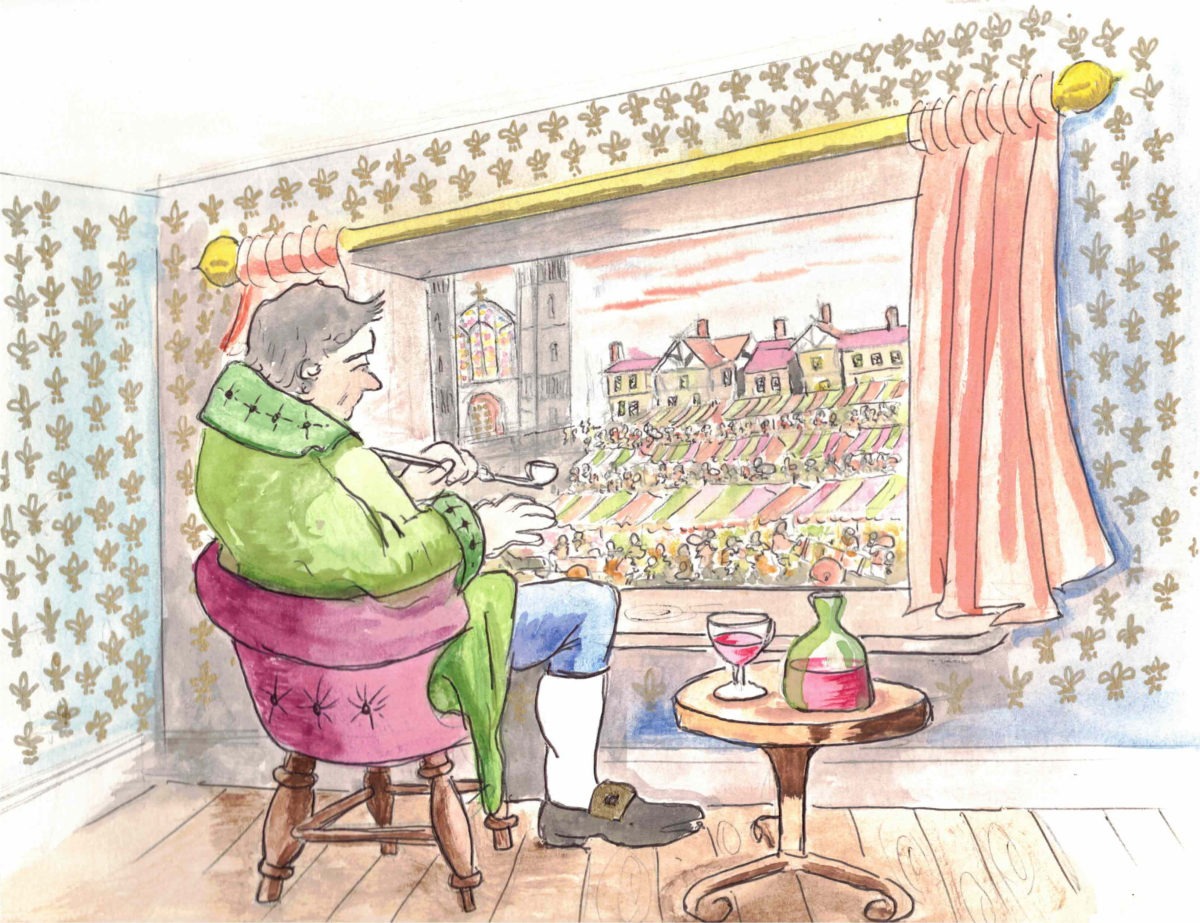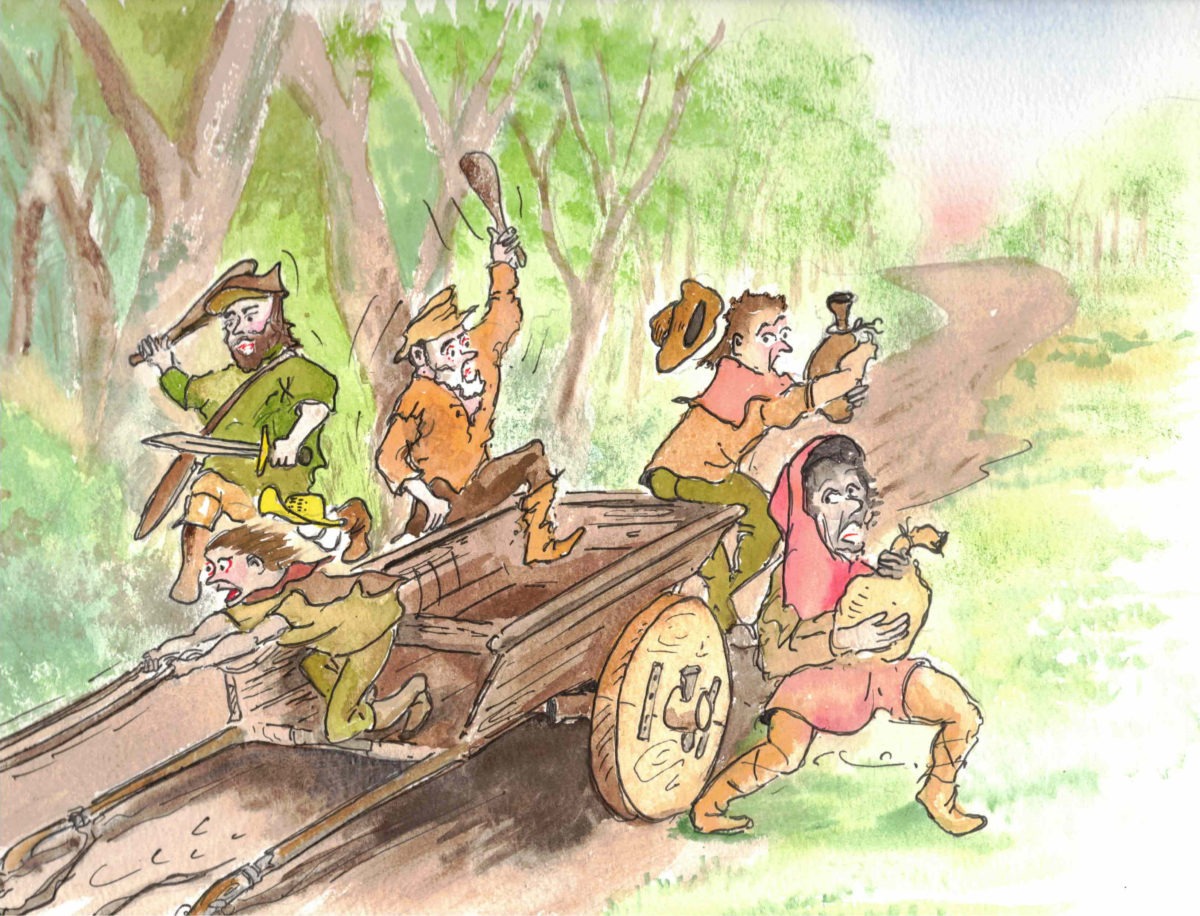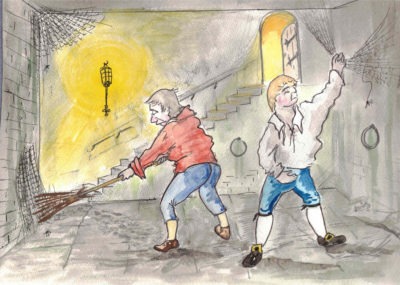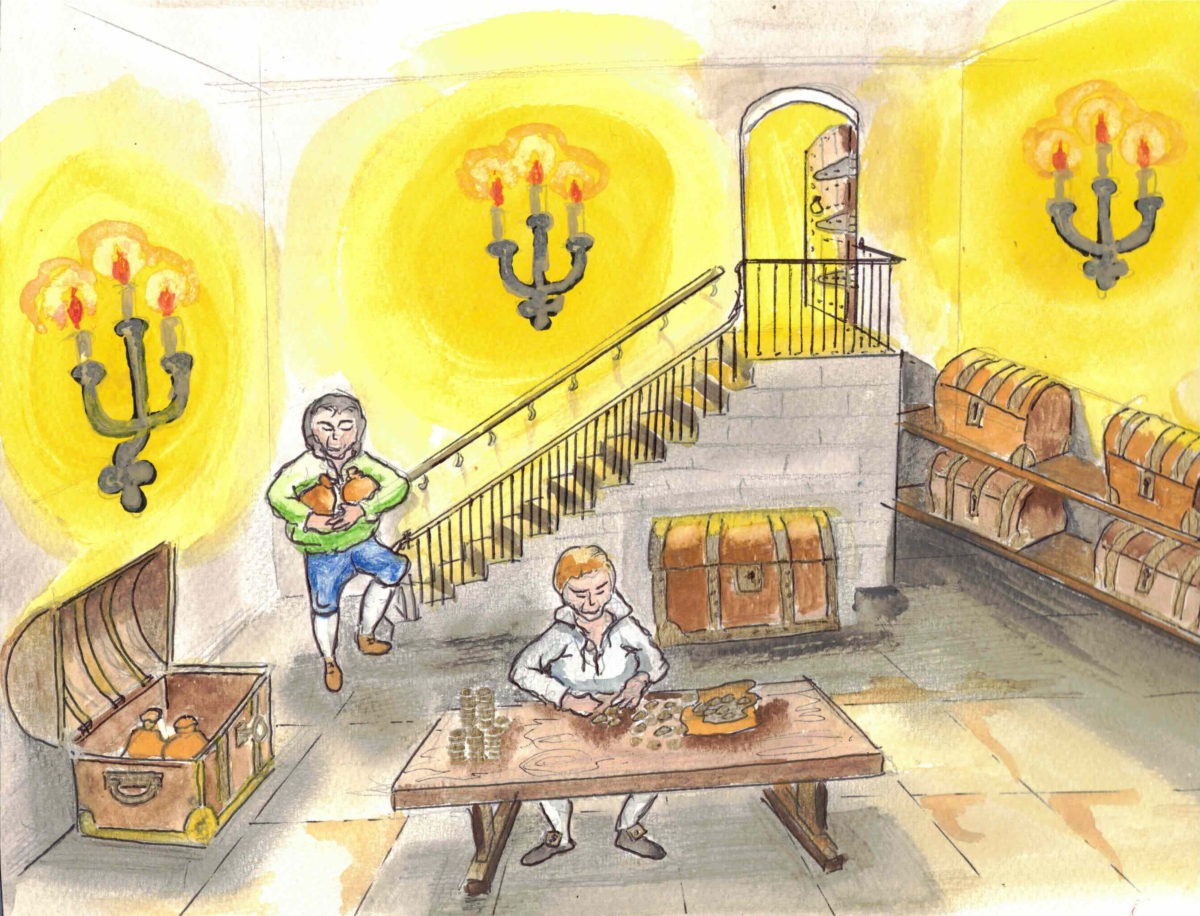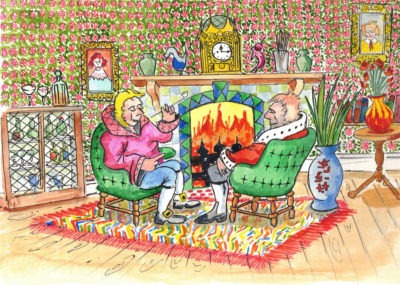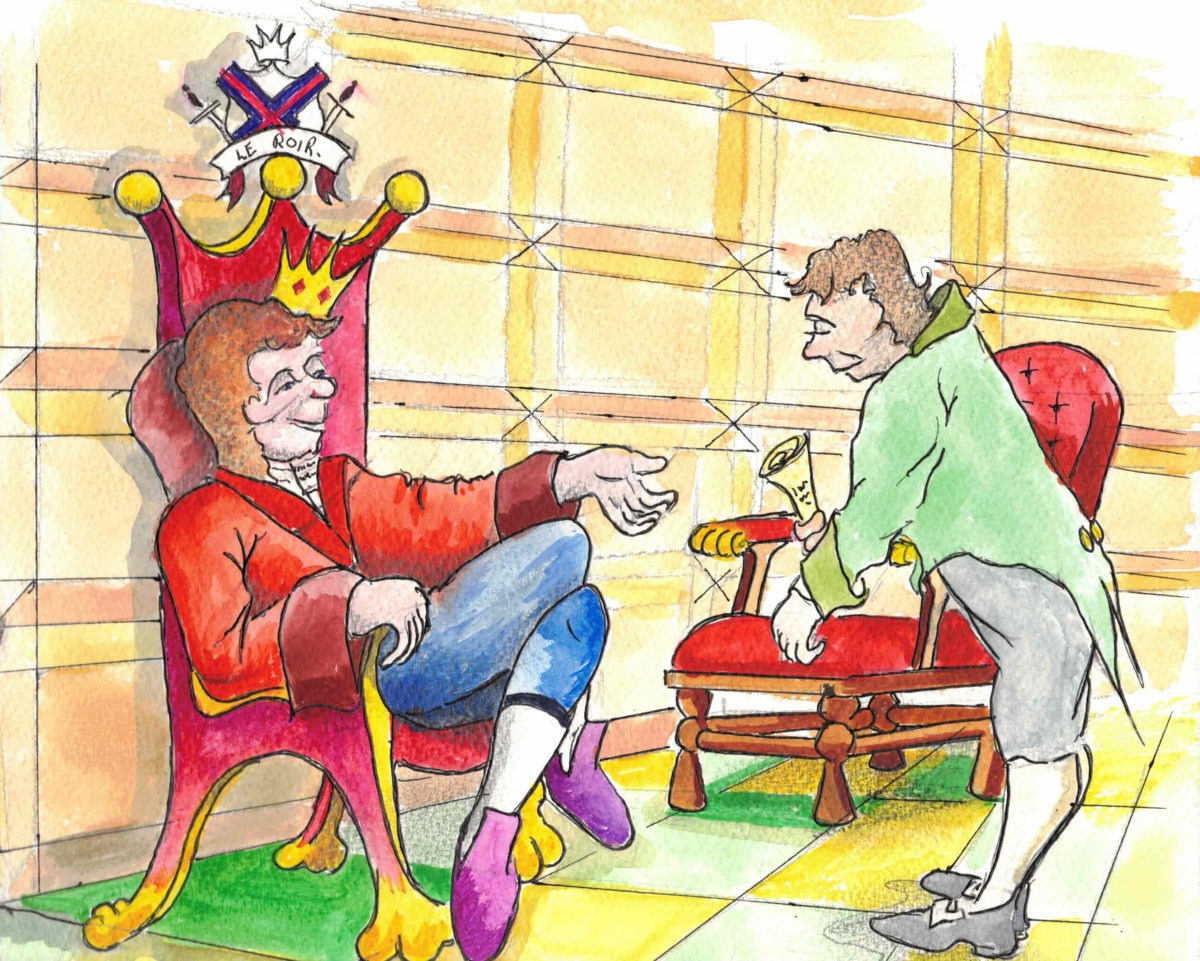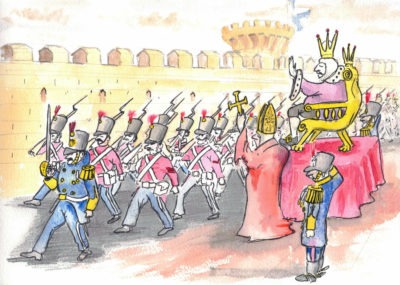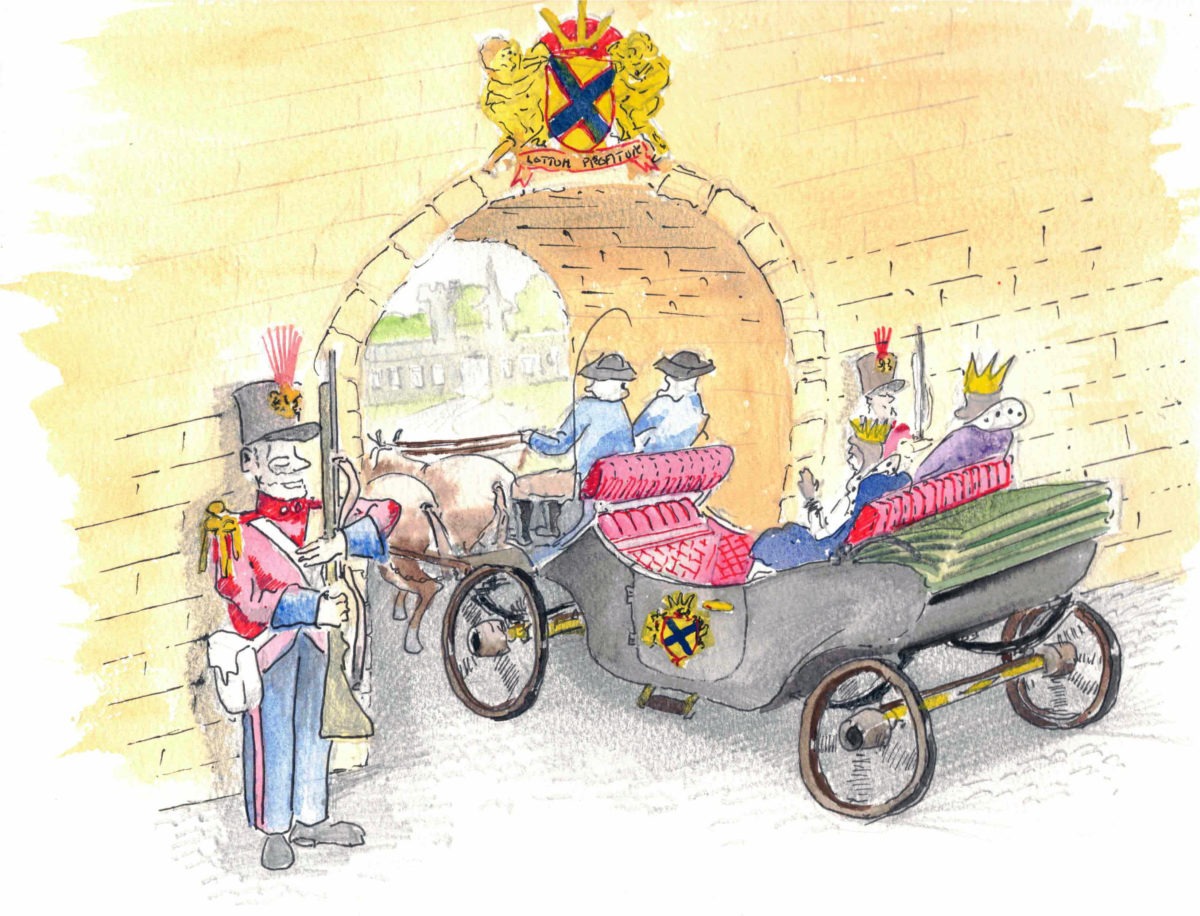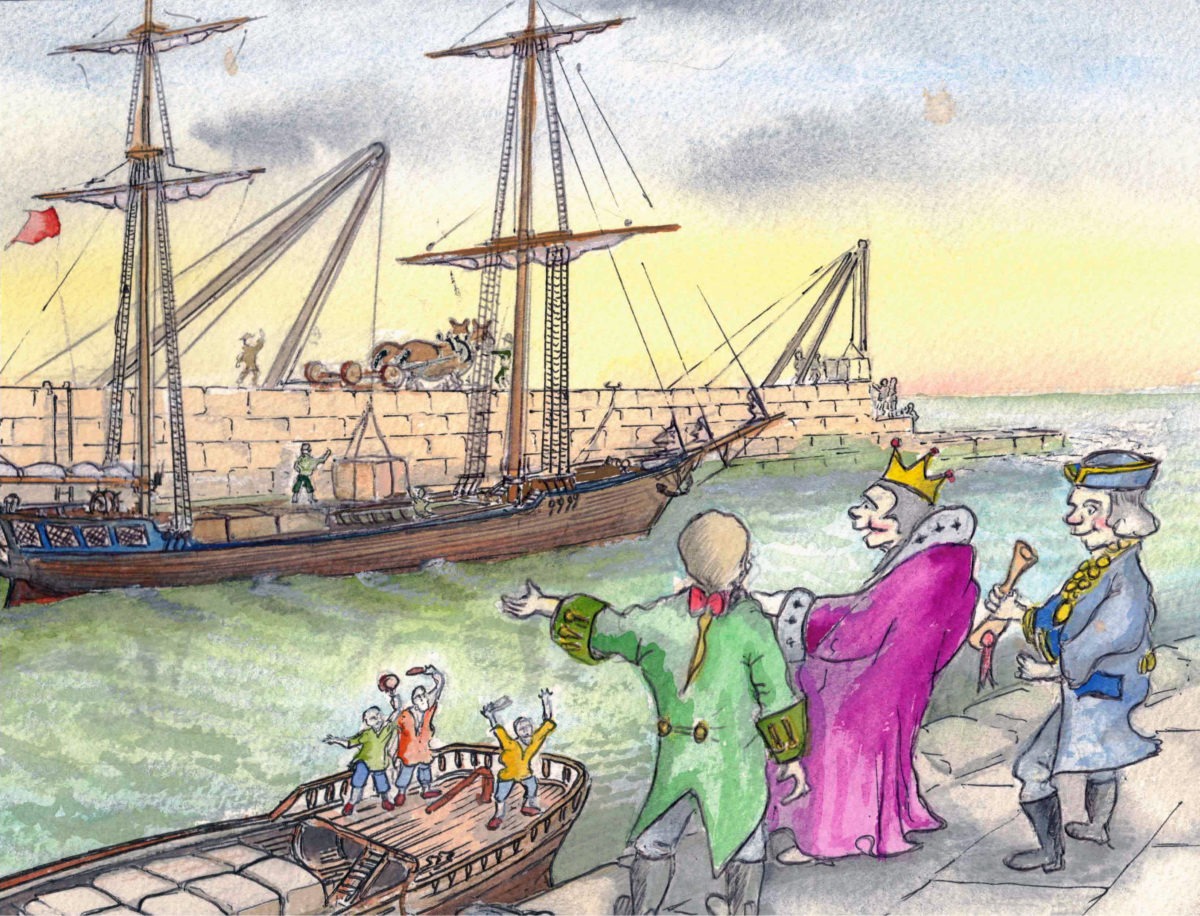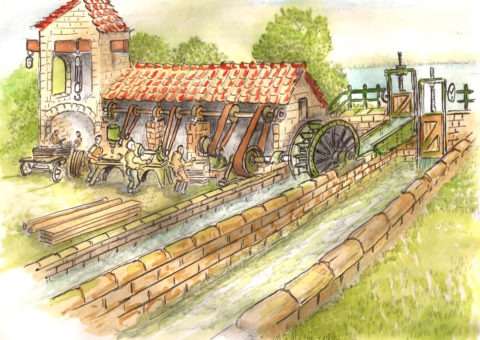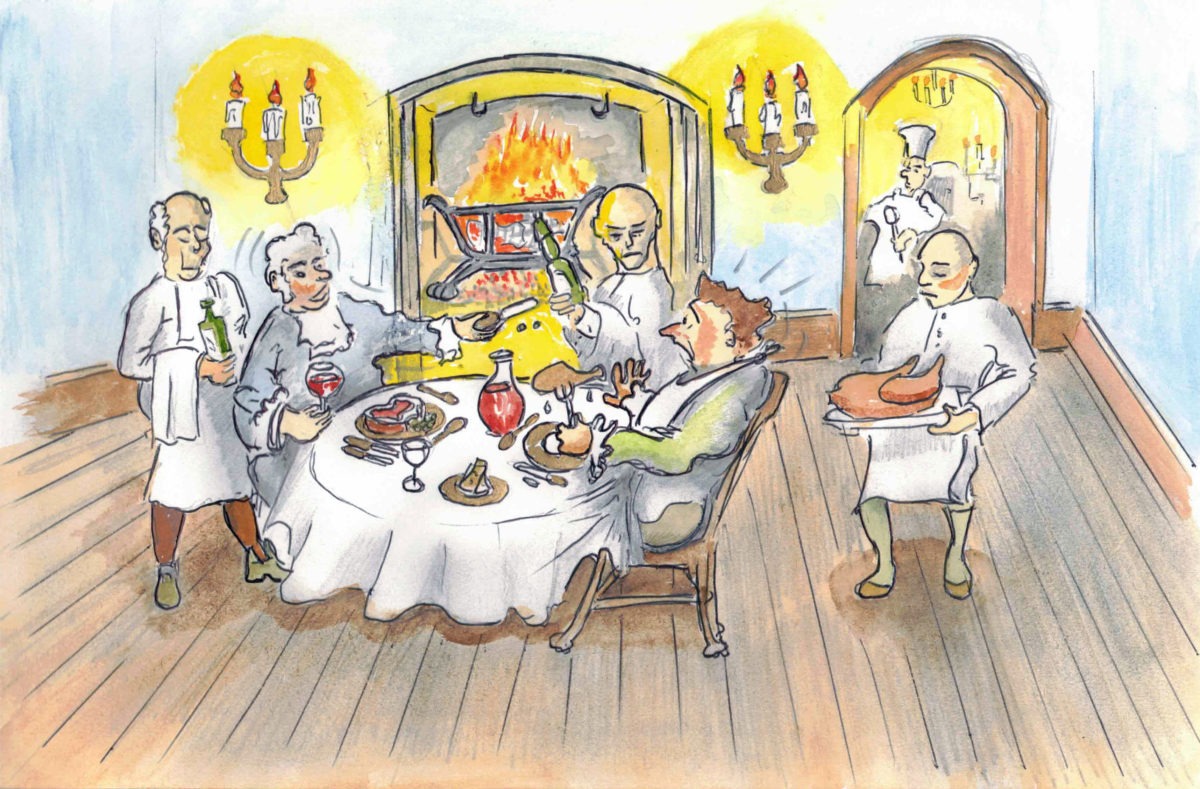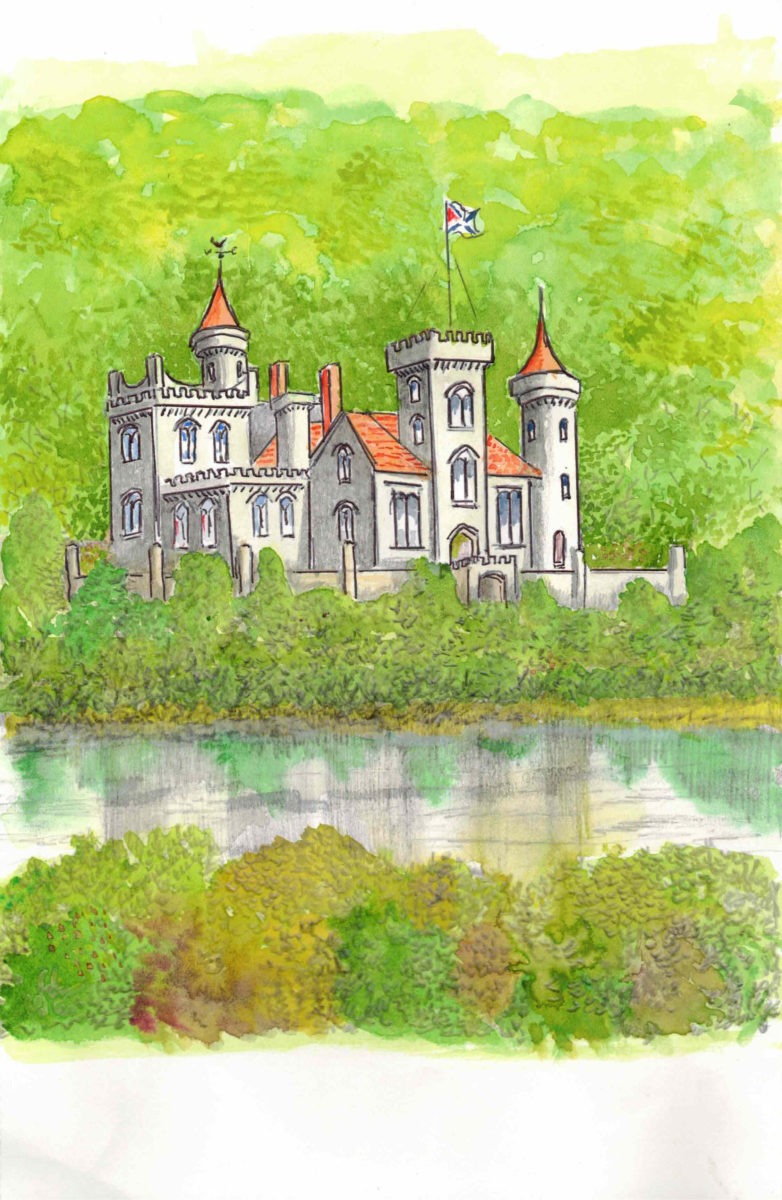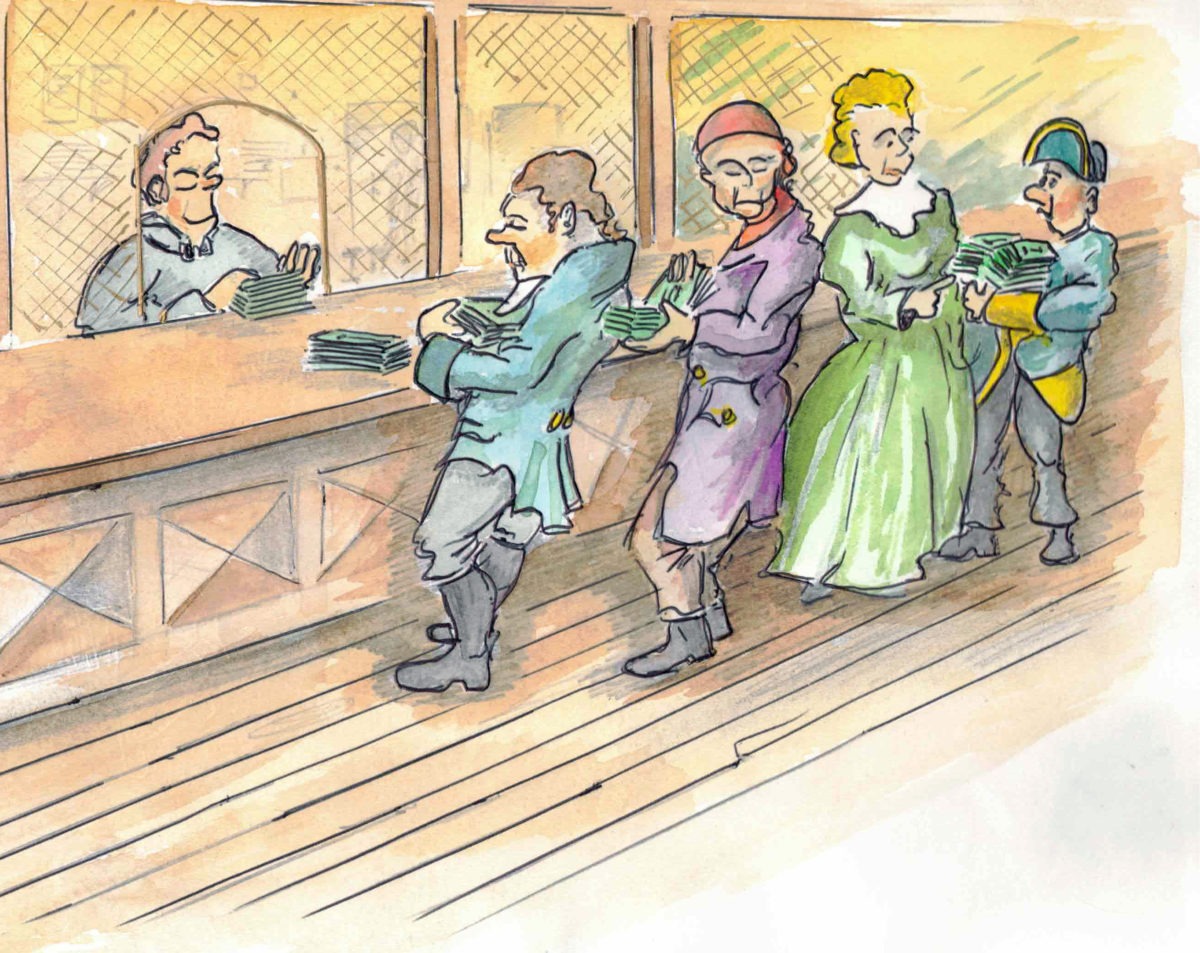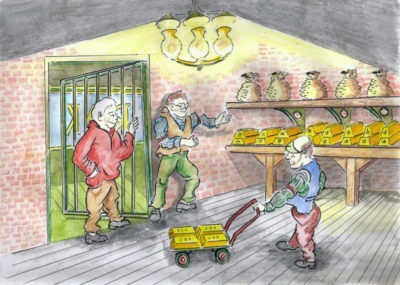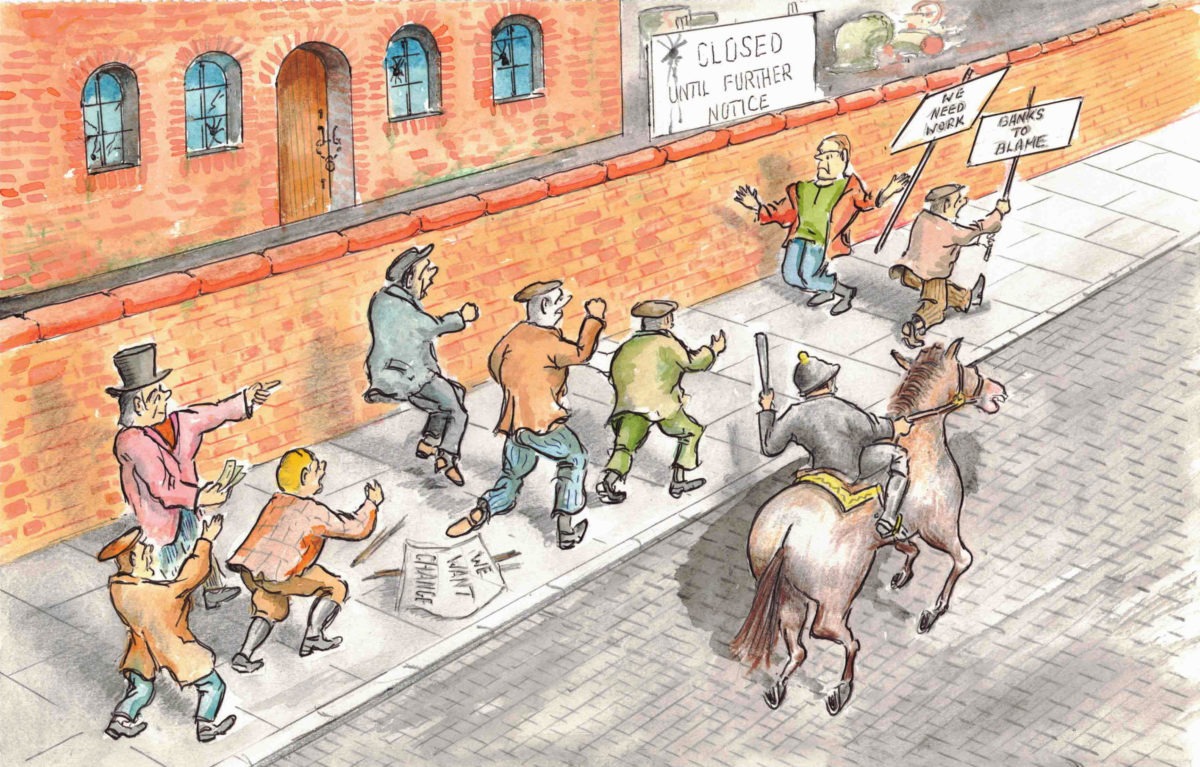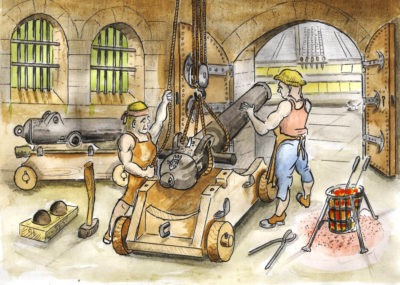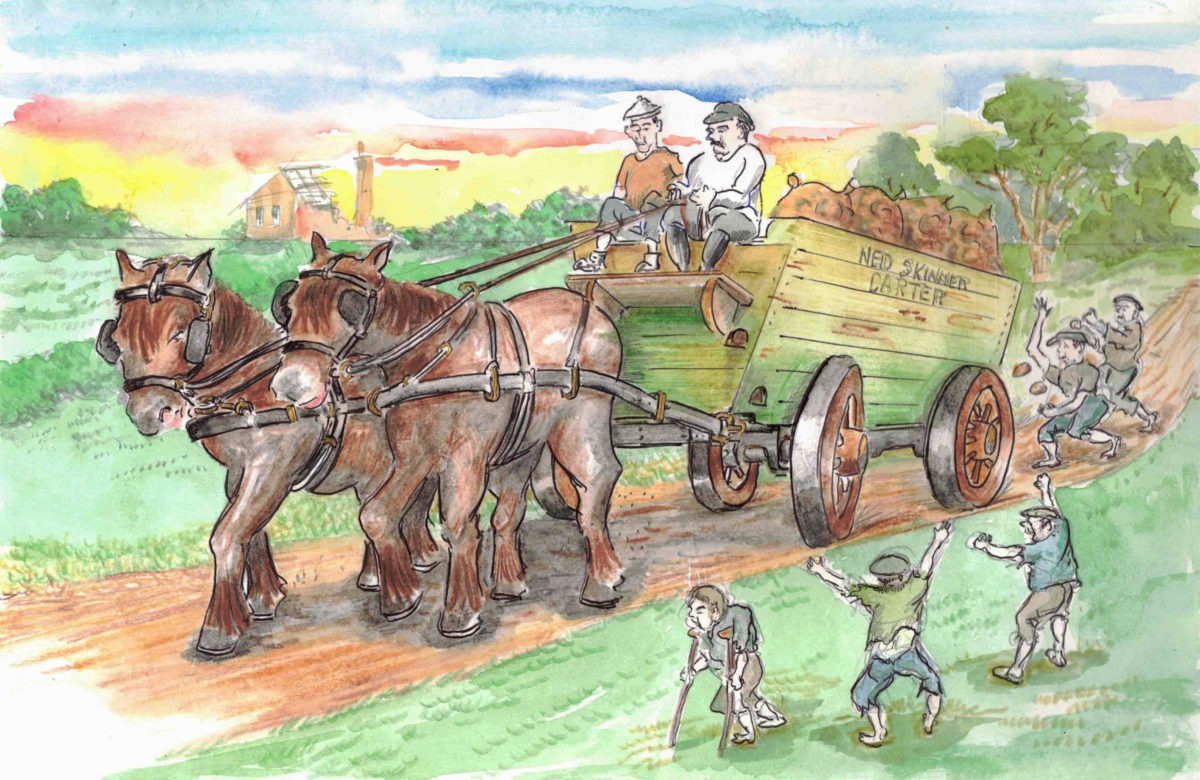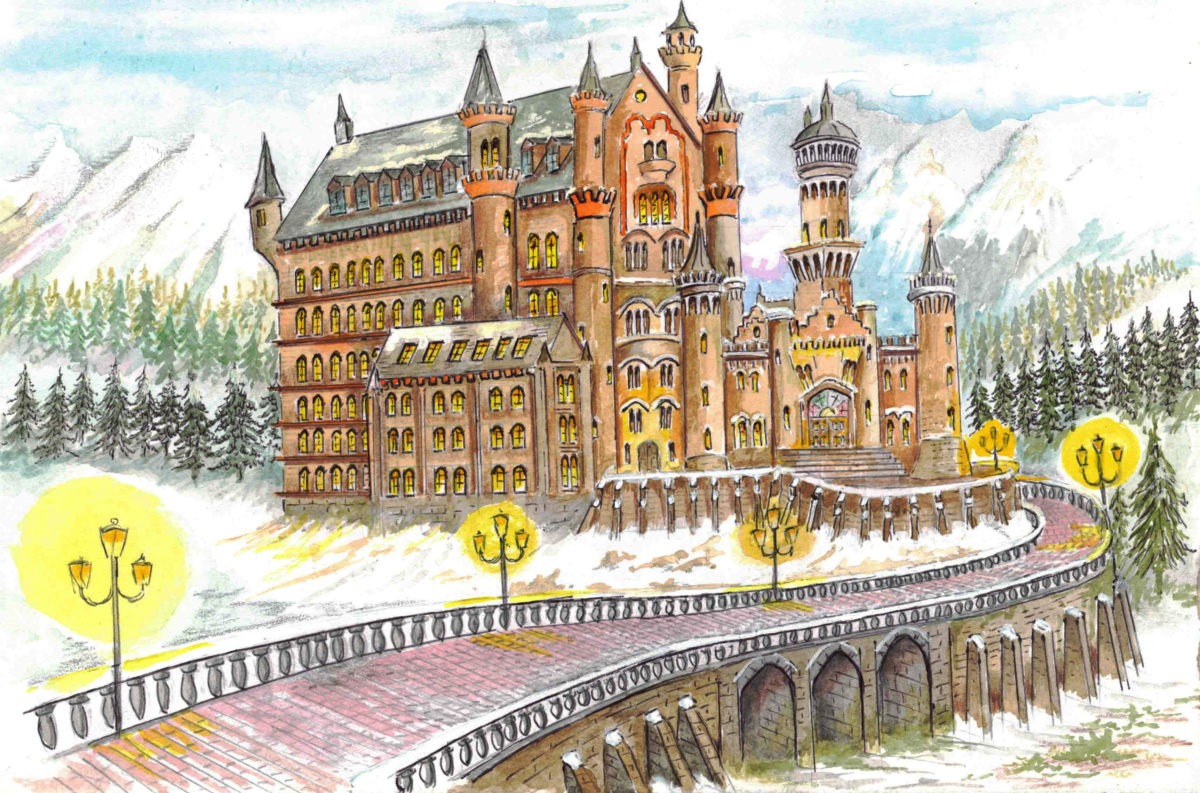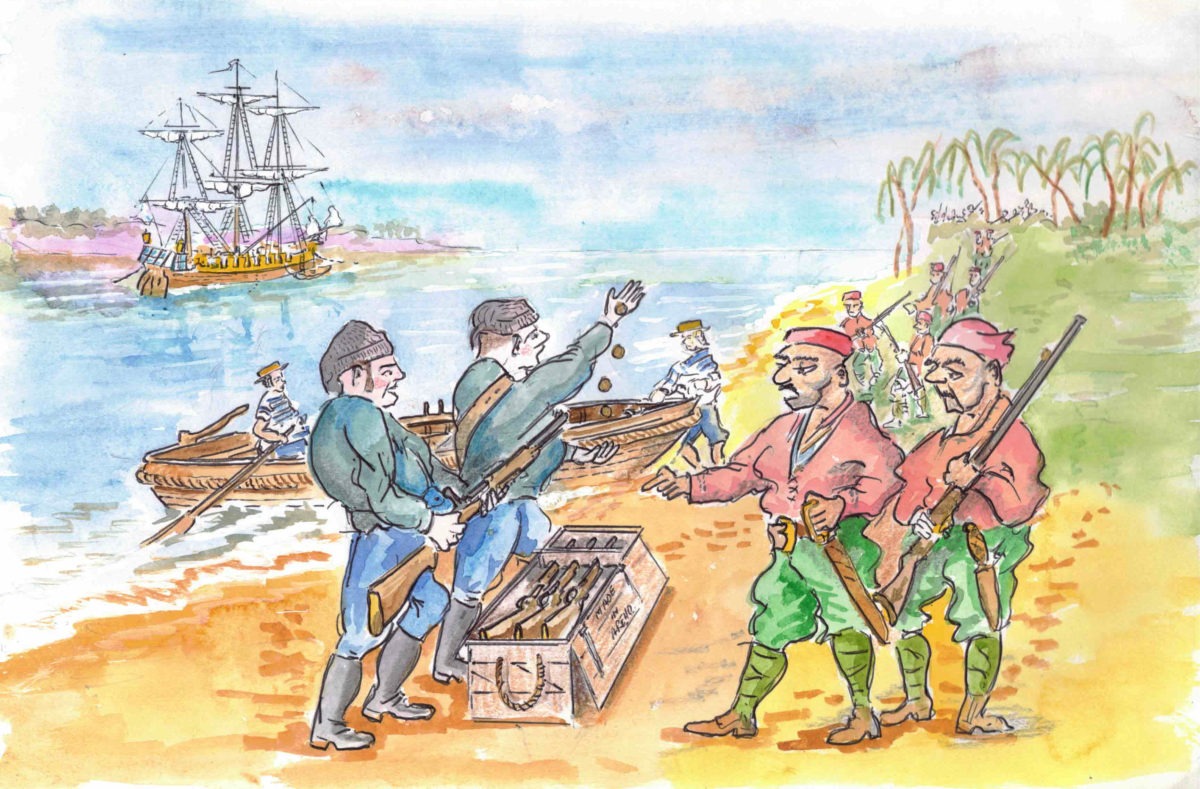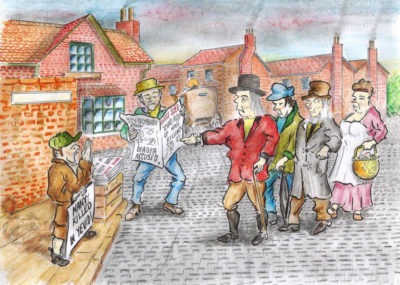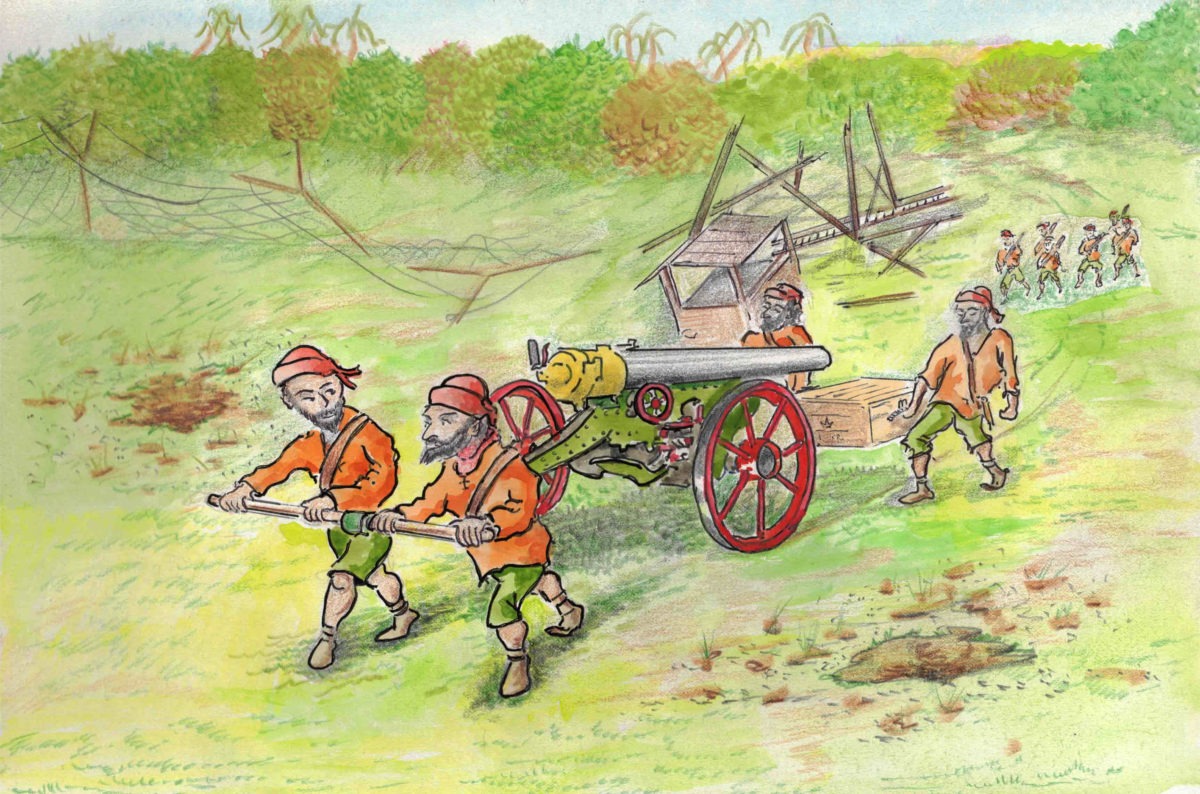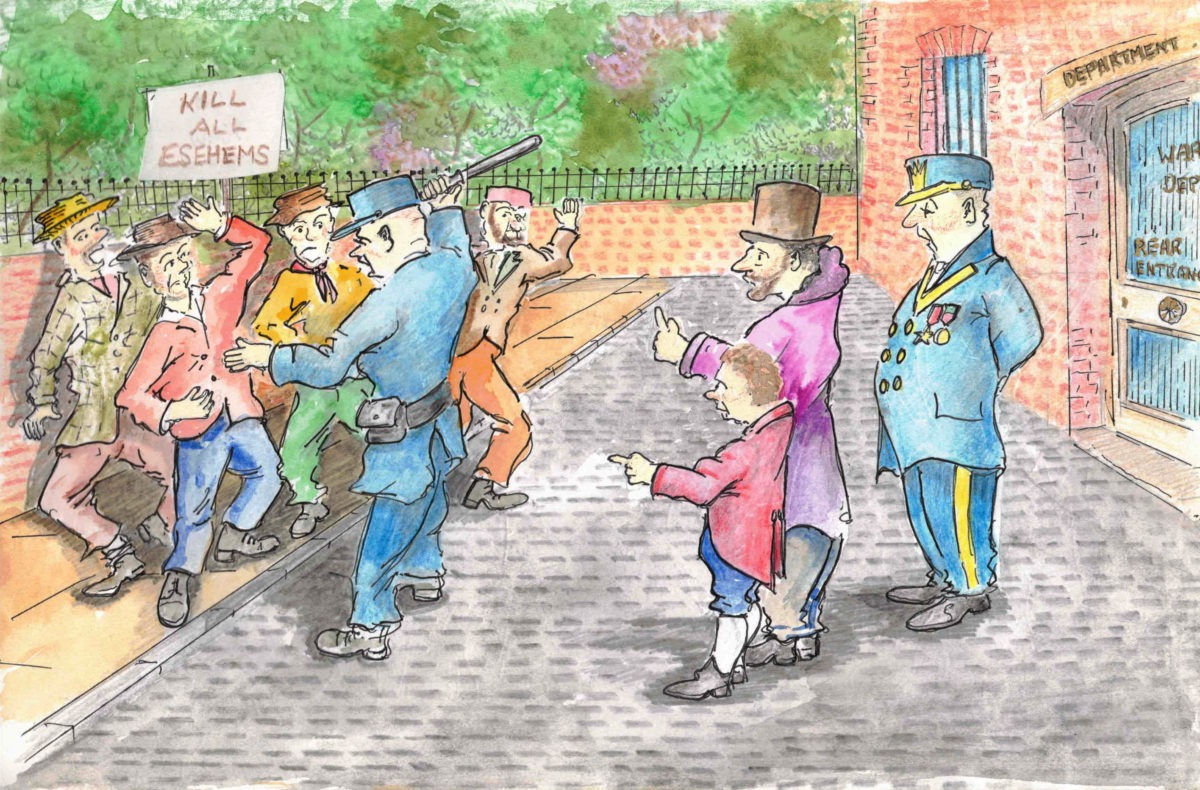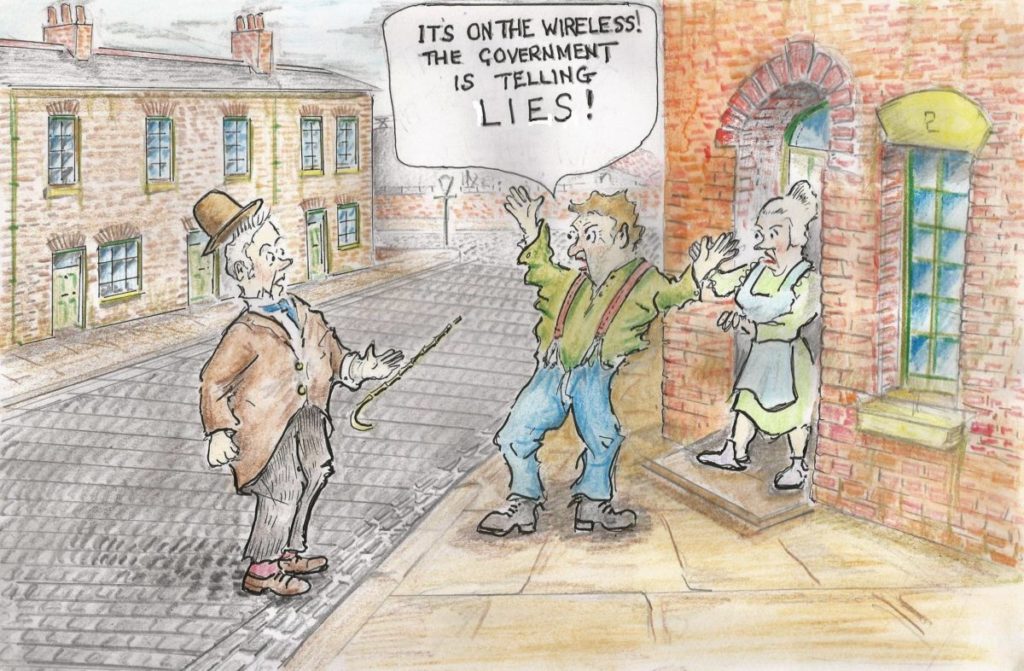Book One:
The Organisation
A fairy tale
Under the auspices of a fairy tale, The Organisation is an eye-popping, no-holds-barred account of the alarming power of money and greed.
Steven Jacklin, Novelist and Playwright
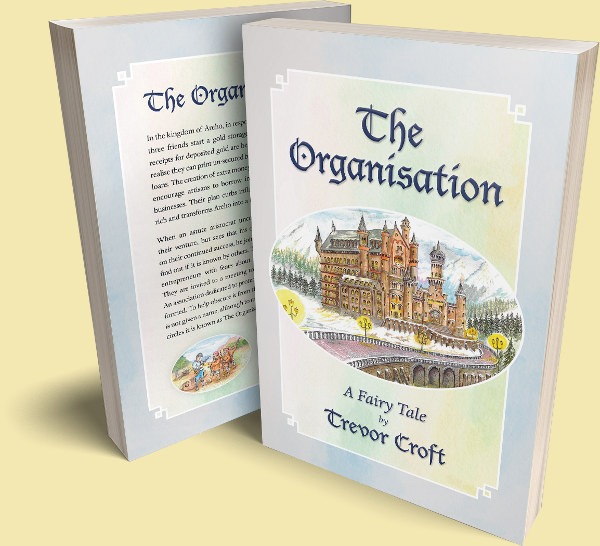
The Author
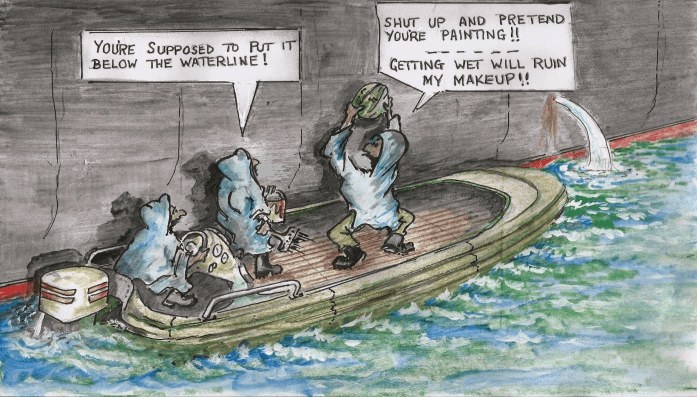
What sort of saboteurs attach limpet mines above a ship’s waterline?
The Story
In response to increasing crime three friends start a gold storage business. Their enterprise is transformed into a very profitable bank when they find they can create paper money, and issue loans, without the need to back all their banknotes with gold. In order to curtail price increases caused by the extra money they encourage workshop owners to borrow and expand their businesses. Their plan curbs inflation, makes them very rich and transforms their country, Areho, into a flourishing kingdom.
When an astute aristocrat uncovers the secret behind their venture, but sees that his own prosperity depends on their continued success, he joins them in an attempt to find out if it is known by others. The investigation reveals entrepreneurs with anxieties about the nation’s new-found prosperity. They are invited to a meeting to discuss their concerns. An association dedicated to protecting business interests is formed. To help obscure it from the public the association is not given a name, although to members of its innermost circles it is known as The Organisation.
Several centuries pass. The Organisation’s strengths grow and in-house marriages transforms it into network of powerful families. The story follows their unseen influence on domestic and foreign affairs in their quest for greater wealth, power, privilege and control. Members fulfil their goal by secretly infiltrating all centers of power and influence, including the monarchy and the news media.
When explorers discover a far-away country they see an opportunity for expansion. But the people of Yevad are unwilling to trade. Moreover, they have dangerous beliefs and customs which must not be allowed to spread to Areho. The only possible solution is war. Political obstacles are overcome and the war proceeds as intended, but astute members of The Organisation’s inner circle realize that the economic system they have created and nurtured has a requirement of its own. It is an issue they cannot ignore.
The Illustrations
The book contains 109 illustrations. They are intended to add an amusing and descriptive side to the story. The artist, Brian, has intentionally been influenced by the characteristic cartoon-like drawings often found in traditional fairy tales. They can be seen by clicking on the drawing below.
They looked around the dungeon, knocking cobwebs away and trying to avoid standing in the worst of the grunge scattered about the floor
Eric and Harry often sat leisurely chatting as the headquarters of their business empire quietly hummed below
After becoming familiar with their respective tasks and working together, Albert’s staff was able to produce nine or ten wheels a day
Albert dreamed of making luxurious carriages with elegant spoked wheels, and of them being pulled by teams of thoroughbred horses transporting finely dressed people to important places
In front of the King and Harry was a painting of a striking woman still blessed with the beauty of her younger years
No one suspected that the country’s upbeat disposition was being clandestinely orchestrated by a highly-secretive Special Intellectual Group
New university departments and scholarly foundations were established by means of seemingly benevolent donations
The Organisation was able to inconspicuously guide and ease the passage of carefully selected intellectuals to positions of power and influence
Miles and miles of canals had been constructed in Areho soon after its development of large scale industries
Areho’s ability to organize its armed forces, and produce powerful weapons abundantly, far outstripped any of its neighbours
Work was usually tedious and repetitive, and workers rarely found any interest in the stuff they helped to produce
Companies owned by members of The Organisation, as recommended to each king, were awarded building contracts
People in an imaginary land were quite happy exchanging their goods for other things. They did not need money.
The Spud Bank promised to exchange its money notes for bags of potatoes, on demand, at any time during working hours
Excitement and anticipation surged throughout the land when it was reported that sails had been observed on the horizon
Sitting in groups, members of the Organisation’s secretive elite group continued expressing their displeasure at the contents of Semsit’s report
Under the guise of buyers, three of the Organisation’s most able men volunteered to sail with the ships
The people of the distant lands lived peaceful lives and seemed to have little experience of violence
There was a big national celebration with lots of singing and dancing each time a new ‘president’ was selected
Some workers occasionally tried to persuade their fellow workers to campaign for fairer wages but there were ways of averting their efforts
Businesses were being offered for sale and once again the economic system was running into difficulties
Excited by the prospect of imminent war, generals were keen to discuss their ideas of strategy and tactics
Guns were to be fired from a ship to reveal their power and accuracy, and to show the bandits what could be used against them if they became hostile
People were to be told that a ship had returned with news of serious civil warfare occurring in Yevad
The Esehems will be instructed to destroy all gathering places where Yevadian customs and values are promoted and cherished
Jeremy and James preferred to sit and talk in an isolated wing of the mansion where they knew they would not be disturbed
Trial steam engines were able to demonstrate the possibility of long convoys of heavily laden wagons being pulled large distances on steel rails
It was thought that when wireless equipment had been fully developed it would be possible to transmit messages over very large distances
If it becomes possible for messages to be broadcast far and wide, to be heard by any receptive listeners with inexpensive receivers, claims of government dishonesty will become very difficult to curb
Fighting started in Yevad when four Yevadian soldiers were ambushed and killed by a squad of Esehem fighters hiding in thick undergrowth
Two men dressed in garments characteristic of the Esehems were found running away from the burning Cathedral
Suddenly a huge explosion, far more powerful than the earlier detonations, occurred from deep inside the building
The Readers
The Organisation is a fantasy set in a make-believe world of wooden sailing ships, horse-drawn carriages and soldiers in red tunics and tall hats. Although it is a fairy tale it contains no magic or talking animals and is not meant for young children. It is intended for grown-ups with a liking for allegory and satire, particularly ones with inquiring interests in a wide range of contentious issues including geopolitics, money, conspiracies, banking, austerity, fake news, corruption, inequality, secret societies, propaganda, ufos and aliens. It probably will not answer all their questions, but it might offer new ways of looking at some of them.
Comments
Here are some of the comments people made about ‘The Organisation: a fairy
tale’
“Very glad that I came across this book. Very well crafted by a knowledgeable
author who turns conspiracy theories on their head. There is also a good bit of
wry humour in places, and I was laughing out loud when The Organisation
decides that the ruling elite should be made up of arts graduates who regard it as
a badge of honour that they have little understanding of maths and science, and
instead drop quotations in ancient languages into their conversation: how
absurd!”
– Amazon Customer
“Very clever and well worth reading. Should be required reading for every 14 to 16 year old. And any adult who wishes to educate themselves about how the world really works.”
– Amazon Customer
“Very clever fairy tale. I came across this book by accident and I am so glad I did…”
– Amazon Customer
“Excellent book, great story, can’t recommend it enough.”
– Pamela Nicholls: Amazon Customer
“Trevor Croft’s book “The Organisation” is a MUST-READ for anyone wanting
to know how our current banking system started and continues to operate.
Written in the form of a fairy tale it brings to light to the average laymen how
the SYSTEM is rigged and we are duped in thinking otherwise. You can’t UNKNOW
this once read! 5 STAR RECOMMENDATION.”
– Jan Jacklin (Canada)
“I really enjoyed The Organisation. It is described as a fairy tale but it is a
carefully disguised story about governments, political systems and the origins of
the banking industry. Many readers will be able to relate to this story. I am
already looking forward to the sequel.”
– Deborah Kamber (England)
“Trevor Croft’s book, The Organization, couched in terms of a fairy tale, is a
unique perspective that describes the development of a commodity-money
centred economy into the sophisticated financial system we would recognize
today. Thus the tale traces the development of banking systems, the novelty of
paper money, money creation where every bank loan creates debt, and the
underlying principles of fractional reserves.
“The book, in a novel and easily digestible style, will appeal to any reader with a
passing interest in (and healthy scepticism of) the powerful forces that shape
and govern financial systems and how they inevitably impact upon the nature
and organization of modern political systems.”
– Ian Richardson (England)
“Trevor Croft’s The Organisation is an eye-popping, no-holds-barred account of
how the monetary system was created, the elaborate means used to maintain it
and the secrets necessary to protect it.
“Under the auspices of a fairy tale and complemented by splendid illustrations,
The Organisation stamps its mark of originality: a stark chronology that exposes
the ruthless power of money wrought by brilliance, family and greed.”
– Steven Jacklin (Canada)
Buy ‘The Organisation’

